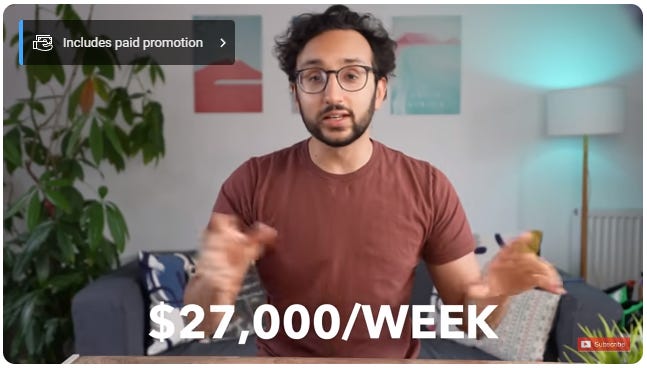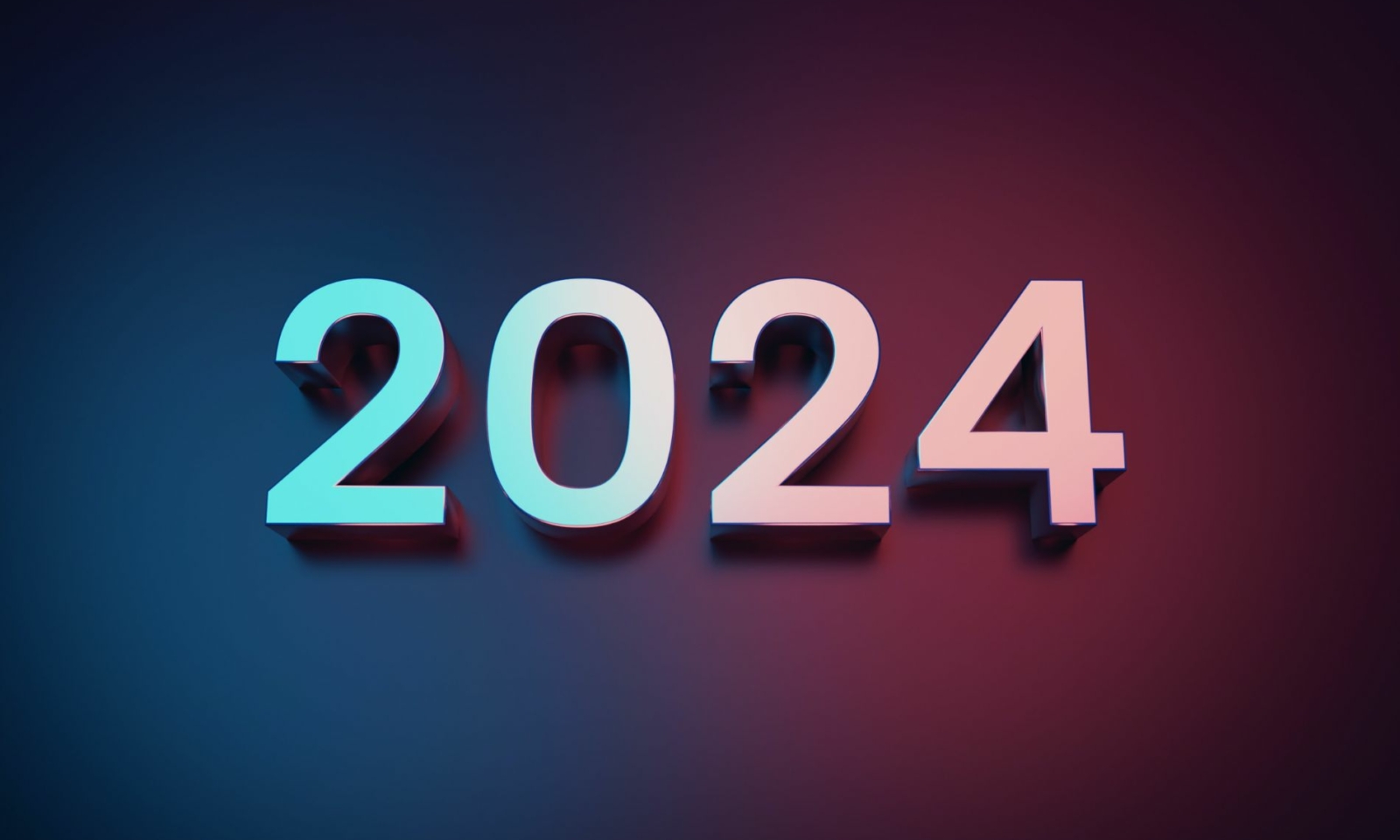2023 was a very exciting time for SEO, with the explosion of AI generated content and all of the drama with ChatGPT and Microsoft – making AI more accessible than ever before. We’ve also seen a huge shift in the Google SERPs as they strive to reward EEAT (expertise, experience, authority and trust).
In this blog, we’ve rounded up thoughts from some of the major players in the SEO space, along with some actionable points to take into your content strategy for 2024. Here are our top 4 SEO predictions for the coming year.
Prediction #1: traffic erosion
This is Google’s way of keeping you on the platform by answering queries without the need to click through to a result. While it’s useful in some instances, for example when you search for “define CAPTCHA” it’s convenient to see that answered right there at the top of the page, it takes traffic away from the websites which historically would have ranked for those terms.
This erosion started with Featured Snippets, then came the likes of the ‘people also ask’ section and widgets like the calculator.

In 2024, we’ll likely see more erosion like this, in the form of Google AI-powered Search Generative Experience.
Search Generative Experience (SGE)
While there’s been a lot of buzz online around Google’s AI, the UK and many other parts of the world are yet to experience the full reality of it. It is, however, planned for release in the UK between January-March 2024.

As seen above, searching for “Bluetooth speaker for pool party” triggers the new SGE. This comes above the organic results (position 0) but (unsurprisingly) below the sponsored posts.
This will undoubtedly sting from a traffic point of view for the journalists who spent hours researching and writing the content which used to rank. Sorry, AI has just done your job in 3 seconds. Also, what are the chances those recommended products become sponsored?
Prediction #2: AI-generated content crackdown
While this might sound contradictory to the point above on SGE, here we’re talking about content creators who rely too heavily on AI. Ironically, Bing and Google are happy to push their own AI systems, but we’ve already seen Google cracking down on websites which appear to rely heavily on unedited AI copy (which was summarised in this LinkedIn post).

We’ve also seen an unprecedented number of algorithm updates in the backend of 2023, which lined up perfectly with ranking drops for AI-reliant sites.
How to tell human & AI content apart
We’ve all experienced those annoying CAPTCHA tests, where we’ve got to click on a bunch of bicycles before we’re allowed to continue on, but what if Google has similar systems to tell which pages were written by humans?

At Venture Stream, we’ve noticed more and more job applicants submitting AI-generated cover letters, with very little to no editing at all. Here are the common signs that are piece of content has been written by AI:
- Americanisms. Despite stating “write in British English”, ChatGPT always seems to prefer using American grammar, more specifically changing “s” to “z”, e.g. optimization or summarize.
- No personal experience. Experience is one of the pillars of Google’s EEAT guidelines. AI often lacks personal anecdotes or experiences, which is common in human writing.
- Overly formal/neutral tone: AI tends to use a more formal or neutral tone, avoiding slang, colloquialisms, or strong emotions.
- Factual errors: While AI can be pretty accurate, it can also make factual errors or show inconsistencies in its understanding of complex or nuanced topics.
- Generic or broad responses: AI responses can sometimes be more generic or surface-level, lacking the depth or insight that might come from an experienced human.
2024 actions
With search engines effectively controlling what AI you’ll see, content creators will have to ask the following questions.
Could AI easily write this?
e.g. “How to tie shoes”
If the answer is YES, then ask
Can I add a unique perspective?
Could you broaden the piece? e.g “How to tie Oxford shoes”
Is the content relevant to my niche or could it be adapted to suit?
If you’re just writing only because you’re hoping to rank for a lucrative keyword, it’s probably not going to work.
Would my existing audience click on this content, from my newsletter?
It’s OK if a piece of content doesnt rank for anything. If it gives value to your regular customers or could be used on social media, the content could still help with your overall ranking efforts.
If the answer to these questions is NO, it’s time to move on to something else.
Lastly, ask:
What do the SERPs look like for this kind of content, what kind of results are showing?
If you see a lot of videos ranking for your keywords, then consider embedding a YouTube video within the content.
Prediction 3: a shift to the spoken word
It’s likely we’ll see budgets shift from traditional written content to formats such as video, podcasts and influencer marketing. As people and search engines become more suspicious of AI, content where you show your face or speak may be the smartest way to convince Google and your audience that you’re human.

Collaborating with an influencer to promote your product or service is a common enough practice. However, If Google continues to erode your blog traffic, the value of written content may be undermined.
Thinking about the platforms people use to consume content outside of Google, such as TikTok and YouTube, there suddenly becomes more incentive to collaborate with influencers without fear that your efforts won’t be seen.
However, well written content will remain essential for long-term growth, adding that EEAT which Google seeks to reward.
Prediction #4: Google as an ecommerce store
This is already prevalent in Google US but will likely reach other countries in 2024. Below, an initial search for ‘men’s casual winter jacket’ triggers a pretty standard set of results, but notice the additional filters on the left-hand side.

Once one of these filter values is applied, we’re served entirely products: no ‘people also ask’, no collection pages, no ‘top 10 winter jackets for 2024’ blog posts.

2024 actions
Your schema markup/structured data needs to be on point to ensure you’re eligible for as many rich results as possible – star ratings, price markup, discounts, etc. Your product descriptions and Merchant Centre feed also need to be optimised for these long-tail keywords, including the material, colour, type, features, etc.
If your website only allows for basic filtering, consider adding the filters Google uses in searches for your product type. This is a good indication that these are the things searched for the most.
Further 2024 SEO predictions
If you’re interested in finding out more about 2024 SEO trends, we highly recommend the following publications.
Crawling Mondays by Aleyda Solis – Top SEO trends in 2024: what to expect and do. Predictions for four powerhouses in SEO – well worth a listen if you don’t have the time to sieve through everything else
Majestic SEO – This year, they asked 101 leading SEOs to share their number one actionable tip for 2024. https://majestic.com/seo-in-2024
Search Engine Land – Key SEO trends for 2024: “the most exciting and dynamic time to be in SEO”. https://searchengineland.com/key-seo-trends-for-2024-435527
Duda – Reached out to 200 digital agencies worldwide to understand how they’re using AI today, the impact it’s had on their businesses, and their plans for AI in 2024. https://blog.duda.co/report-2024-ai-outlook-for-digital-agency-leaders
For expert, one-on-one help with your SEO and content strategy for 2024 and beyond, send us a message to speak to a member of our organic search team.

